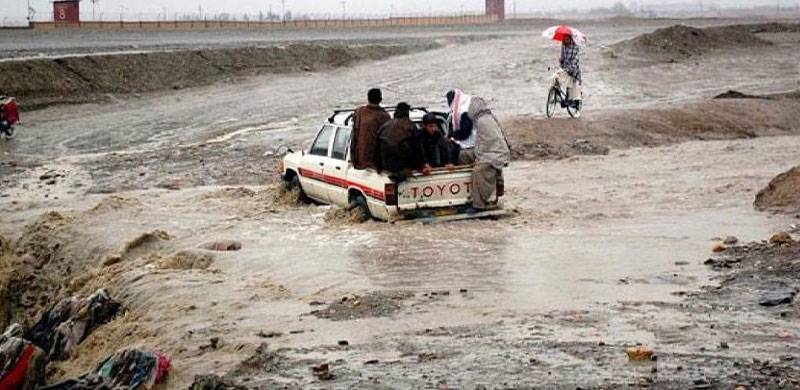
Pakistan stands on the frontline of the climate crisis, ranking among the top-ten countries most vulnerable to its devastating effects. The country teeters on the brink of water scarcity, and the rising sea levels accelerate the salinisation of precious inland waters. The relentless surge in temperatures, surpassing global averages, threatens every aspect of human existence. There is a pressing need for enhancing resilience and mitigating climate risks, which became very apparent after the 2022 super-flood that affected 33 million lives and surpassed global monsoon flooding records.
The National Adaptation Plan of Pakistan (2023) emphasises upon the importance of "nature-based solutions" (NBS) as a vital element in the country’s climate policy. Nature-based solutions are actions to protect, conserve, restore, and sustainably use and manage ecosystems in a way that addresses social, economic, and environmental challenges while simultaneously benefitting human well-being and biodiversity. Globally, countries increasingly incorporate NBS into their climate strategies, with 92% of national climate targets referencing these solutions. For developing countries like Pakistan, NBS can be one the most impactful investments in addressing the severe consequences of climate-induced disasters. However, this inclusion needs to be followed by concrete, actionable interventions along with systematic monitoring and evaluation frameworks to ensure effectiveness.
Pakistan, over the years, has been on the precipice of economic instability, barely surviving through external debt and remittances to finance its development needs. The devastation from climate-driven catastrophes, such as floods, droughts, desertification, increases the burden on country’s insufficient resources. With people displaced, and houses battered, the need to invest in rehabilitation augments. These rehabilitation efforts are costly, ranging from building houses to rejuvenating schools to including more people in the social safety net programmes, such as the Benazir Income Support Program (BISP). They contribute to already widening trade deficits, slow improvements in human capital, and increasing unemployment rates.
The most viable long-term solution is to prevent the exacerbation of climate-related disasters in the first place. This can only be achieved by strengthening communities' resilience to climate change while expanding efforts to reduce carbon dioxide from the atmosphere. Although technological solutions such as carbon capture and storage or developing carbon credit frameworks may be ideal for reducing greenhouse gas emissions, these initiatives demand significant financial investment and a strong regulatory framework—both of which are limited in Pakistan. That is not to say Pakistan cannot build on it; however, considering the present economic and political landscape, the need of the hour is cost-effective, ecologically friendly, and people-empowering solutions to help communities fight extreme climate events.
In Chennai, India, a restored wetland would not only provide habitat for wildlife and improve water supply but also increase communities’ resilience to floods. Similarly, the tremendous growth of mangrove trees in Pakistan will not only improve fishing communities’ livelihoods but also act as great carbon sink
In its essence, nature-based solutions focus on urging communities, practitioners, and policymakers to work with nature, rather than against it. To give an example, in Chennai, India, a restored wetland would not only provide habitat for wildlife and improve water supply but also increase communities’ resilience to floods. Similarly, the tremendous growth of mangrove trees in Pakistan will not only improve fishing communities’ livelihoods but also act as great carbon sink. Most importantly, NBS promotes the participation of local communities in enhancing climate adaptation efforts. This is critical because no one understands the impacts of climate change better than the people who experience it firsthand and are intimately familiar with the environmental, social, and economic issues within their communities.
The versatility of NBS lies in their ability to simultaneously enhance communities’ resilience to climate change while removing carbon dioxide from the atmosphere. For instance, planting trees in a manner that takes into account the region’s topography, climate, and groundwater levels would not only absorb carbon dioxide but also prevent soil erosion, provide shade, and enhance the scenic beauty of the area. The benefits of NBS extend beyond environmental improvements, as they also address critical economic and social challenges. Therefore, by incorporating NBS into national policies and local practices, governments can ensure that their climate adaptation strategies are both effective and equitable.
As beneficial an investment in nature-based solutions could be, the momentum for this is not immense. Perhaps one reason can be the confusion around the mere definition of nature-based solutions and what types of interventions fall under these solutions. At present, there are more than 20 different definitions of ‘nature-based solutions’ each with their own varying scope. For instance, some limit nature-based solutions to only those based in functioning ecosystems that would not count “nature-derived” solutions or “nature-inspired” solutions. However, its significance can be realised from the fact that nature-based solutions can provide a third of the carbon mitigation needed to meet the Paris Agreement 2016 goals.
NBS provides businesses and investors in the private sector with a rational, practical approach to re-orient their investment strategies in alignment with nature. However, implementing NBS within the private sector requires a stringent system of checks and balances. This is vital because companies are often criticized for engaging in "greenwashing," where they exaggerate the environmental impact of their activities without delivering any measurable results. To avoid such pitfalls, it is essential for private sector to invest in NBS while adhering to science-based target initiatives, which ensure that environmental goals are both credible and verifiable. In Pakistan, the private sector can benefit from this approach, as it is not an entirely new concept. Globally, over 1,200 companies have already committed to science-based targets, with nearly half of them aligning their efforts with the 1.5°C target of the Paris Agreement. This demonstrates that nature-based solutions should not only be the domain of policymakers and local communities but must also be embraced by the private sector to scale up climate resilience and sustainability efforts in Pakistan.

